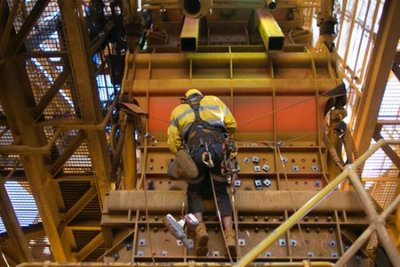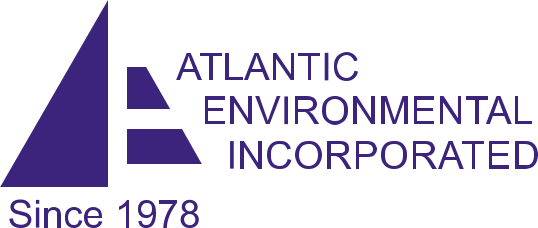
If you need assistance with job safety analysis (JSA)/job hazard analysis (JHA) as discussed in this article, call us at 973-366-4660 or email us at info@atlenv.com for details and a free estimate.
Written by Robert E. Sheriff, MS, CIH, CSP, President
October 5, 2018; August 2019; Updated September 2021
JSA and JHA Requirements on a Construction Project
Often, many construction projects now require a JSA/JHA for the required activity at the project site. This is certainly the case with government-related work such as projects for the U.S. Army Corps of Engineers (USACE), Bureau of Reclamation, and those that are state-funded. Now many public and private projects on buildings and hazardous waste operations (HAZWOPER) also require a JHA as part of the site-specific Health and Safety Program (HASP). A JHA fulfills an important part of any construction project in that it anticipates worker hazards on a job before the work starts which can prevent injuries/illnesses.
The Process
The JSA process can be quite daunting when you must anticipate every task that may possibly occur on a job site. Often there are hundreds or even thousands of individual tasks on one site. Anticipating what could go wrong or where someone could get injured is equally complex. The only reasonable way to develop a true JSA/JHA is to involve the experienced workers, supervision, and safety specialists for the job site.
In a project with a limited number of tasks/steps, it is best to start at the beginning, but often there are just too many tasks to take this approach.
What should you do?
-
Set priorities:
List history of jobs where injuries occurred.
Close calls.
OSHA citations.
New activities that were never done before.
Complex tasks requiring written instructions.
-
List the tasks needing a JHA/JSA.
-
Break the tasks into individual steps.
-
For each individual step, find the possible hazards:
What can go wrong?
What are the possibilities of an injury?
How often can this happen?
Are there any contributing factors? (Weather, time of day, adjacent activities, equipment/materials used, etc.).
-
For each hazard.
-
Clarify how to prevent the hazard from occurring:
Different method.
Different equipment/materials.
Changes to equipment or materials.
-
Clarify how to protect the worker. (Note: “Eliminate hazard” is better than “protect the worker”):
PPE.
Change process or administrative controls.
-
Review the JHA/JSA with involved employees:
Make changes based on employee’s input.
-
Assign Responsibility:
Accountability for implementation.
Accountability for training/re-training.
Accountability for equipment, supplies, PPE.
Supervision of workers to follow JSA actions.
-
Follow-Up:
Make changes to JHA/JSA where it’s not feasible, practical, or effective.
Make changes if “near miss” or injury occurs.
Use JHA/JSA as a training/re-training tool.
Use in accident investigation.
-
Review:
Have an annual review or when jobs change.
New project applicability.
There are many available references of how to develop JHA/JSA’s such as OSHA www.osha.gov/publications\OSHA 3071.html. Also, many states (Maine, California, Washington) and insurance carriers have provided excellent examples of JHA/JSA methods that can be found online.
We can provide program development for in-house personnel and assistance in writing JSA/JHA’s, reviewing specific projects, or reviewing JSA’s. Our main value is to act as facilitators in addressing the hazards on a job. Contact us at 973-366-4660, email info@atlenv.com or fill out our online contact form.
Our primary service areas for Construction Site Specific HASP’s are: New Jersey NJ, New York NY, (New York City), Pennsylvania PA, Connecticut CT, Delaware DE, Massachusetts, (Boston) MA, Rhode Island RI, Washington DC, Wisconsin WI, Maryland MD, Michigan MI, Illinois (Chicago) IL, Virginia VA, Indiana IN, Georgia (Atlanta) GA, Alabama AL, North Carolina NC, South Carolina SC, Tennessee TN, Texas (Dallas, Ft Worth) TX, Oklahoma OK, DC, Arkansas AR, Florida FL. We can service most other areas of the U.S. but additional travel charges will be applied.



